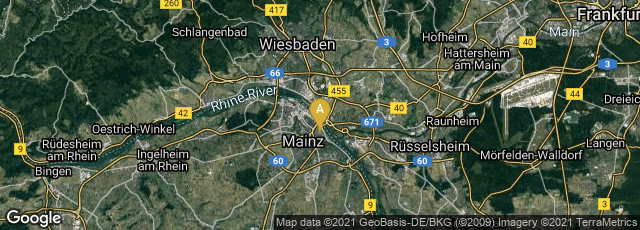

A: Altstadt, Mainz, Rheinland-Pfalz, Germany
A feud between Archbishop Adolf II von Nassau, named archbishop for Mainz by the Pope, and Archbishop Diether von Isenburg, who was supported by the people, caused Adolf II to send troops to raid the city of Mainz on October 27, 1462, plundering and killing 400 inhabitants. At a tribunal that followed, those who survived lost all their property, which was then divided among those who promised to follow Adolf II. Those who did not promise to follow Adolf II (among them printer Johannes Gutenberg) were driven out of the city or thrown into prison.
The new Archbishop denied Mainz its town rights and made the city an archepiscopal capital. This debacle stopped printing in Mainz for the next few years and contributed to the spread of printing:
"It wiped out commerce there, and the consequent lack of money led printers, who were established in a kind of industrial group, to scatter widely. This accounts for the German names we find among the earliest printers in other countries throughout Europe" (Updike).